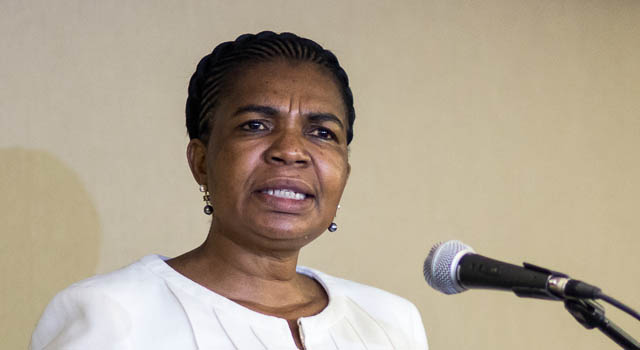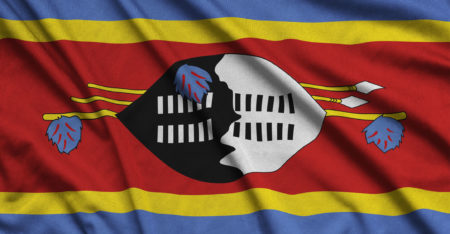
Parliament’s joint committee on ethics and members’ interests is expected to present the findings of its investigation into allegations of corruption against communications minister Dina Pule at the next full sitting of the national assembly, which takes place on 20 August.
Pule appeared before the committee’s closed hearings in May, but the findings have yet to be made public. It’s alleged that Phosane Mngqibisa, who is said to be romantically linked to Pule, benefited from funds provided by corporate sponsors for the ICT Indaba.
If the committee finds against Pule, it has the power to freeze her assets, as it did in the case of ANC parliamentarian Yolanda Botha who it found had benefited from suspect tenders, or it can ask the public protector to institute a probe. (A separate probe by the public protector is already under way.)
Democratic Alliance MP Dianne Kohler Barnard, who sits on the committee, tells TechCentral that a subcommittee meeting is scheduled to take place next Wednesday, 17 July, where the report detailing the findings of the investigation will be finalised.
Once finalised, the report will be presented to the full committee and the findings will be delivered to parliament during its next full sitting, which is scheduled for 20 August.
The committee reportedly received more than 2 000 pages of evidence related to its investigation.
Pule is also awaiting the outcome of an investigation into allegations of corruption and nepotism by the public protector, Thuli Madonsela. The minister has been accused of appointing people to key government positions at the behest of Mngqibisa, in addition to the allegations surrounding the ICT Indaba.
Both investigations were prompted by a series of investigative pieces published in the Sunday Times newspaper. In April, Pule called a press conference at an upmarket Johannesburg hotel where she accused three of the newspaper’s investigative journalists of engaging in a smear campaign against her in order to ensure their own business and political connections would benefit from the awarding of lucrative tenders.
The public protector’s report was initially expected to be released in March but was then delayed until the beginning of May. It was further delayed after a witness cancelled an interview at the last minute.

Speaking to TechCentral last month, public protector spokesman Kgalalelo Masibi said Madonsela’s office hoped to provide a provisional report to the relevant parties “soon”.
Meanwhile, Bart Henderson, a forensic auditor whose services have been retained by Mngqibisa, has gone on the attack against the parliamentary ethics committee, whose hearings he has described as a “Sunday Times tribunal”.
“The Sunday Times is the basis and substance of your existence,” he says in a letter to committee chair Ben Turok and published online. The newspaper, he alleges, has shown that it “will not hesitate to make allegations, create innuendo, hint and allege for the sole purpose of destroying [someone’s] name and reputation without a shred of evidence and will stop at nothing to achieve that objective”.
In the letter, Henderson lashes out at the Sunday Times and its editor, Phylicia Oppelt, for providing documentation implicating Pule to Kohler Barnard, which was then entered into evidence at the hearing.
Pule had earlier laid a number of complaints with the press ombudsman, one of which related to Oppelt’s decision to hand over information to the committee via the DA. The minister accused the newspaper of acting unethically and of losing its independence to the DA.
But press ombudsman Johan Retief said he could find “no trace of evidence” that the Sunday Times had lost its independence in favour of a political party or that it could be accused of unethical behaviour.
Retief dismissed two further complaints laid against the newspaper by the minister. This prompted a backlash by Pule’s spin doctor, Wisani Ngobeni, who said the department of communications would appeal against the decision to the chairman of the South African Press Adjudication Panel, judge Bernard Ngoepe. “No amount of spin will change the fact that the Sunday Times editor was wrong to have covertly submitted information to Kohler Barnard or the ethics committee,” Ngobeni said.
In his letter to Turok, Henderson says the ethics committee’s hearing was “fatally flawed” and “unethical” and was based overwhelmingly on evidence that was “not only tainted but highly suspect and in instances illegal, to the extent it would not be admissible in any respected hearing, let alone court of law”.
He says the information supplied by the Sunday Times was sourced and disseminated “illegally and introduced underhandedly. In any respected hearing, it would be ruled inadmissible. The records are copies, unvalidated, uncertified and obtained illegally, and no lawyer, forensic auditor, forensic accountant, detective, prosecutor, magistrate or judge in the world would accept that ‘evidence’ as admissible.”
He also accuses the committee of leaking information to the media, even though the hearing was a closed session. Henderson claims in the letter to Turok that committee’s “total failure to act … within not only the rules of parliament but sound jurisprudence” led to Pule suffering “immense” prejudice. “It is difficult to determine whether yours is a fair hearing or an assassination,” Henderson says in the letter. — (c) 2013 NewsCentral Media




